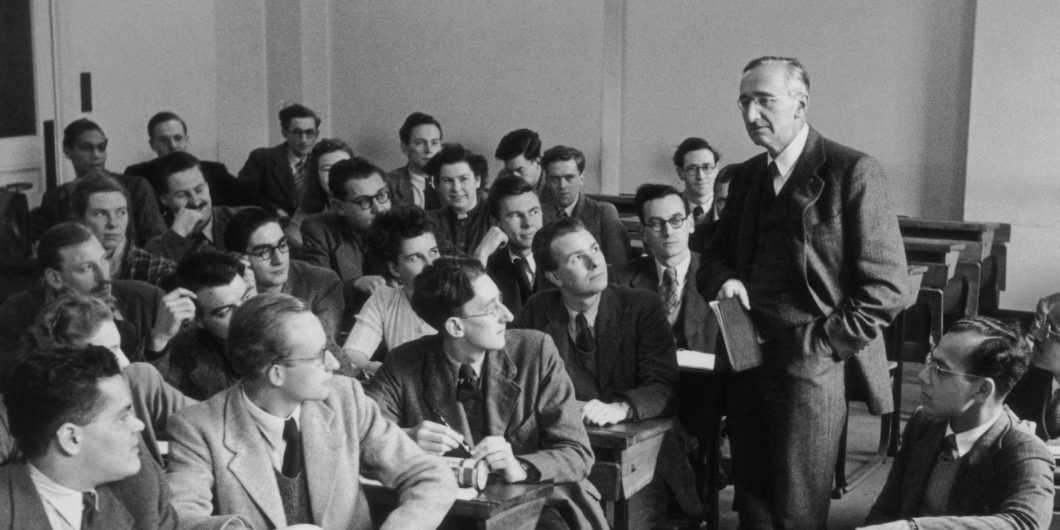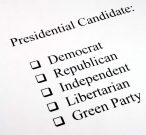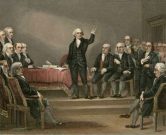Libertarianism in the Modern State
G. Patrick Lynch’s critique in this publication of my book, Burning Down the House: How Libertarian Philosophy Was Corrupted by Delusion and Greed is generous, but with reservations. He praises the book for its openness to libertarian ideas, but then complains that I have misconstrued some of my sources (Hayek and Locke) and neglected other important ones (Mises and the public choice argument). He thinks that my work shows “the danger of applying thinkers who were writing in different contexts to contemporary policy debates.”
I argue in the book that neither Locke nor Hayek foreclose the possibility of redistribution of resources to address urgent human needs, as more doctrinaire libertarians such as Rothbard, Nozick, and Rand do. The book grew out of the Obamacare debate, where, I argued in my earlier book, The Tough Luck Constitution and the Assault on Health Care Reform, the central issue was whether such redistribution was morally legitimate. My claim that minimal-state libertarianism had infected that controversy was vindicated in 2017 when the Republican-controlled House embraced proposals that would have taken insurance away from between 22 and 32 million people, using most of the money saved for massive tax breaks for the rich. Sen. Rand Paul and House Freedom Caucus chair Mark Meadows explained that their core complaint about “Obamacare-like subsidies” was that the beneficiaries would get “other people’s money.” (The House bill was too draconian for the Senate to stomach, Obamacare remained in place, and the issue helped the Democrats retake the House in 2018.)
I begin my book by describing the public discourse concerning a 2010 episode when a fire department let a house burn down because its owner had forgotten to pay his insurance fee. Lynch asks if this is “a useful way to open a review and critique of libertarian thought and its impact on public policy in recent decades.” Everyone who debated the episode at the time, however, understood that the issue was the same as that presented by the then-pending Obamacare proposal: ought there to be public provision against such misfortunes? The 2017 Republican repeal draft was the functional equivalent of what the fire department did. Lynch asks whether the department’s action “was the result of libertarianism run amok.” But the Republican bill certainly was.
My book surveys libertarian responses to redistribution and regulation, both of which elicit far more flexible and sensible responses from Hayek (at least until his late writings) than from other leading writers, such as Milton Friedman.
I argue that this position is some distance from that of Hayek and Locke. I don’t overlook the harshness of Locke’s social welfare policies: “The destitute could be forced to work; the work wouldn’t pay much.” I also argue in some detail that, whatever Locke may have believed, the logic of his contractarianism dictates social policy that looks more like the more generous liberalism of John Rawls. Lynch thinks that I’m speculating about whether Hayek “would have approved” of the basic scheme of Obamacare, in which coverage is expanded by subsidizing the private purchase of insurance. But I’m not speculating or making inferences from his “general view”: I show that Hayek proposed precisely that in 1960, as a substitute for the British National Health Service, which put doctors on the state payroll.
Hayek would certainly have quarreled with some aspects of Obamacare. (Harrison Griffiths, at the Institute for Economic Affairs, makes a similar complaint.) Part of the corruption of libertarianism that I describe is the displacement of Hayek by less defensible, more doctrinaire forms. I write: “There had been responsible Republican proposals to maintain broad coverage using more market-friendly mechanisms.” In the event, those proposals got little Republican support. Had the Republicans been willing to negotiate with Obama, they might have moved the law in that direction. With respect to this issue, the party was in the hands of the Rothbardians.
My book surveys libertarian responses to redistribution and regulation, both of which elicit far more flexible and sensible responses from Hayek (at least until his late writings) than from other leading writers, such as Milton Friedman. I cover Mises briefly, comparing his rigid, evidence-insensitive praise of markets unfavorably with Hayek.
On regulation, Lynch claims that my book “ignores … all of public choice.” Public choice theory claims that government will inevitably be captured by special interests, often presenting this as an argument, or at least a powerful presumption, against regulation. In the book, I say that this theory is sometimes right, but “is falsified whenever the state delivers broad benefits to unorganized citizens at the expense of organized groups. And, although capture does happen, the theory is constantly being falsified. Consider the fact that the air you’re breathing and the water you’re drinking are both cleaner than they were when the Environmental Protection Agency was created in 1970.” I also note, at the end of the book, that the operational effect of this presumption has been to cripple the capacity of the United States government to address the ongoing catastrophe of climate change. I repeat what I said there: “Regulation is just a kind of law, the kind that agencies are authorized to promulgate. It makes no sense to be against regulation as such. Law can be good or oppressive, but one needs to get into the specific case for any measure before one can tell.”
I repeat what I said to Rachel Lu when she interviewed me for this outlet, “the shift that has happened over time in libertarian thought is the view that the smaller the state is, the better the state is, the more free we are. The larger the state, the less free we are.” And this shift matters. “While there are lots of elements of the Republican party that don’t embrace that view, if you look at the track record of the Republican Party, the last time they held the presidency and both houses of Congress, what they actually managed to accomplish was enormous tax cuts for the rich and gutting the regulatory apparatus, the administrative state.”
This is not a recipe for liberty. I’ll conclude by repeating what I say in the book about the danger that this state of affairs presents to principled friends of human freedom, the sort of people who read this publication:
I use the term corruption in two related senses. It sometimes means an accidental transformation in which the original message is garbled, as with corrupted computer code. It also means, more invidiously, the abuse of authority for personal gain. Both meanings are relevant here. Malign interests have benefited by garbling the original meaning of libertarianism. The ideology of small government attracts two very different groups: principled ideologues … driven by philosophical commitment, and predators who want to hurt people without interference from the police. As libertarian rhetoric becomes more common, the second group increasingly likes to masquerade as the first.


